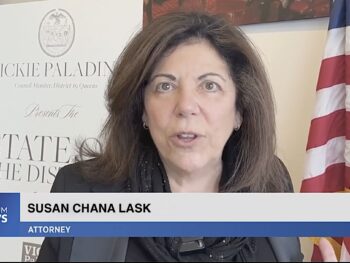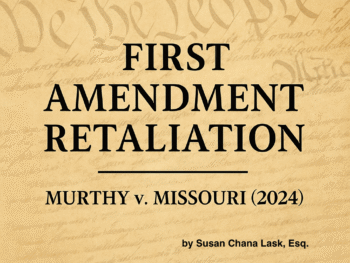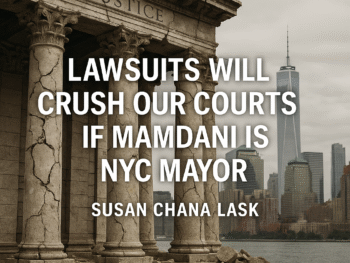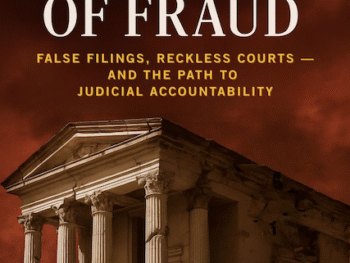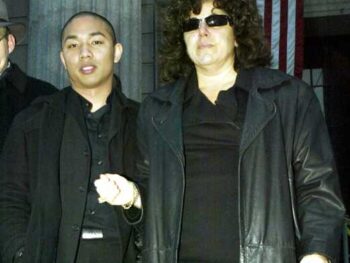Court: Jail strip searches illegal
By: DANIELLE CAMILLI Thu, Feb 12 2009
Burlington County Times
Strip searches of inmates held for minor offenses at the Burlington and Essex county jails are unconstitutional, a federal judge has ruled.
U.S. District Court Judge Joseph H. Rodriguez’s Feb. 4 decision holds both county detention centers liable and could cost both counties millions in monetary damages.
“The search procedures at Burlington and Essex County jails do not pass constitutional muster,” Rodriguez wrote. “… The searches are performed pursuant to a blanket policy without distinction between indictable and non-indictable offenders. Thus, a hypothetical priest or minister arrested for allegedly skimming the Sunday collection would be subjected to the same degrading procedure as a gang-member arrested on an allegation of drug charges.”
Burlington County Solicitor Peter Nelson said the freeholder board, which owns and operates the jail, plans to appeal the decision in the classaction suit originally brought by a former Burlington Township man in 2005.
“We vigorously disagree and we think the judge is dead wrong,” he said. “We have a policy in place and in line with the New Jersey administrative code that provides for the safety and security of not only jail staff, but the inmates.”
While Rodriguez found the searches unconstitutional, he did not order them to stop.
The decision stems from the lawsuit filed by Albert Florence, who spent six days in the Burlington County Jail in Mount Holly when he was picked up on a bench warrant for an unpaid fine issued in Essex County. He alleged he was subjected to a full strip and body-cavity search upon intake at the Grant Street jail. Florence was searched again when transferred to Essex County and spent a day there before authorities realized the warrant was issued improperly.
He claimed the searches violated his constitutional protection against unreasonable search as a nonviolent offender held on a minor, or nonindictable,
offense.
The law only permits strip searches when there is a reasonable suspicion the accused could be concealing a weapon, drugs or other contraband, the suit contended.
Florence’s suit did not challenge the rights of corrections officers to strip search those charged with more serious, or indictable, crimes.
“I am fighting this case and winning it to ensure our constitutional rights are not stripped away by anyone, in prison or anywhere else,” New York attorney Susan Chana Lask, who represents the plaintiffs. “It’s disgusting to hear that someone’s grandmother was strip searched because she failed to pay a traffic ticket on time. Unless she was carrying a gun or a heroin needle, then leave her alone.”
The judge granted class status to Florence’s suit last March. The class includes any former or current inmate held on a non-indictable offense at the Burlington or Essex county jails from 2003 to present who were directed by officers to strip naked for inspection without those officers stating they had a reasonable belief that the inmates
were concealing prohibited items.
He wrote that the complete disrobing and examination of a nude inmate’s body often occurs in front of other inmates, further contributing to the “humiliating and degrading nature of the experience.”
Burlington County argued its search policy not only is necessary to prevent smuggling of contraband, but also to identify gang members through body markings, tattoos and piercings, according to the decision.
The county also cited the need for searches to identify medical conditions, including MRSA, which can spread quickly in the jail.
It also argued nonviolent offenders are only subject to “visual observation,” not more intrusive strip searches that require body-cavity searches.
According to the lawsuit, inmate-search procedures at the jail call for unclothed “visual observations of the inmate’s physical body to look for distinguished identifying marks, scars or deformities, signs of illness, injury or disease and/or the concealment of contraband on the inmate’sbody.”
Lask said Wednesday she would move for a jury trial to determine monetary damages for the members of the class, which she estimated includes at least 10,000 people. “And it grows every minute and every day,” she said. “I want these people to testify and let the jury decide what it’s worth to be stripped naked
in front of officers. I want them to think about how they would feel if it was them, their mother or child.”

